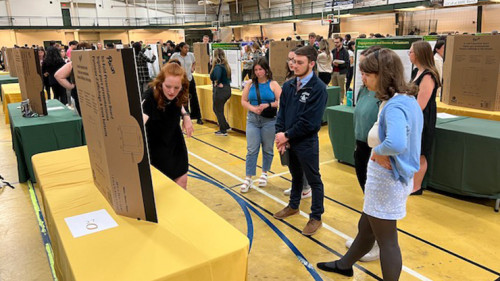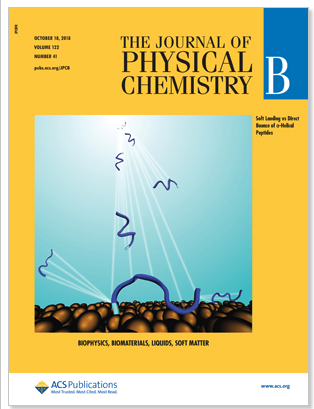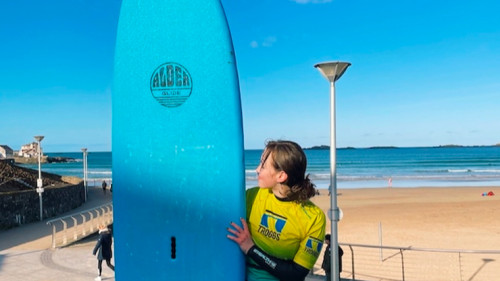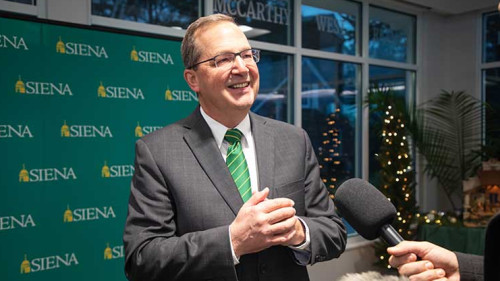

The chair of Siena’s Department of Chemistry and Biochemistry has been awarded $282,383 from the National Science Foundation (NSF) to help fund further research at the College, as well as workshops for area high school teachers.
George Barnes, Ph.D. associate professor, received the three-year NSF grant in support of his research on how peptide molecules fall apart or stick to surfaces following high energy collisions in the gas phase - or in layperson’s terms, how molecules fall apart after they’ve been hit.
“This research will help us understand the most fundamental processes that take place and hence help us understand the more complicated ones,” said Barnes.
He explained that the grant-funded research is part of a larger, long-term goal to determine the importance of long-range interactions. The research will actively involve Siena students who will gain experience in both computational and experimental methods and have the opportunity to present their results at conferences and collaborate with researchers at Purdue University in Indiana.
"Dr. Barnes’ NSF grant is very exciting for us,” said John Cummings, Ph.D., dean of the School of Science and professor of physics. “Not only will this support allow him to continue with his peptide molecule interaction research, it will also allow him to work with additional Siena undergraduates, creating unparalleled research opportunities for our students."
An area high school student will also be selected to join the research team.
Barnes said that of the 14 academic papers he’s published while teaching at Siena, six have featured student co-authors. His most recent article was just published in the Journal of Physical Chemistry B. It was the cover article in this prestigious academic journal.
“Having the opportunity to work with a great mind such as Dr. Barnes is hard to come by,” said Jesus Lopez ’19, a physics major from Phoenix, AZ. “It’s his optimism and drive to progress forward and get results that makes working with him amazing.”
The grant will also support two-day summer workshops on the Siena campus that will help area high school teachers incorporate both computational science and chemistry into their classrooms. Up to 10 teachers can be accommodated each summer.

